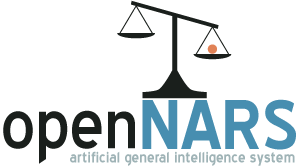With notable progress in recent years, the AGI-oriented NARS (Non-Axiomatic Reasoning System) has been attracting increasing interest from researchers and students from around the world. Built on top of its open-source implementation OpenNARS, several NARS-based and NARS-related projects have been undertaken and are currently under development. To encourage communication and collaboration among the researchers, as well as to introduce these projects to the AGI community, NARS Workshop will be held during AGI-21 as an integrated part within conference.
Because of the difficult situation caused by COVID-19, the workshop will be a one-day on-site and virtual event (Oct 15). It will start with guest speaker's presentations about related to NARS projects and a tutorial that introduces the conceptual design and current implementations of NARS. The workshop concludes with a General Discussions discussion about future research. The workshop will be open to all AGI-21 attendees. Additional demonstrations and tutorials may be arranged on a case-by-case manner for those wishing to learn more about the project.

Key Information:
- When:
- October 15, 2021 (On-site and Online Event)
- Where:
- AGI-2021
Hilton Garden Inn.
4216 El Camino Real
Palo Alto, CA 94306 - Timezone:
- Pacific Time Zone (PDT)
Contact:
- Peter Isaev:
- peter.isaev@temple.edu











